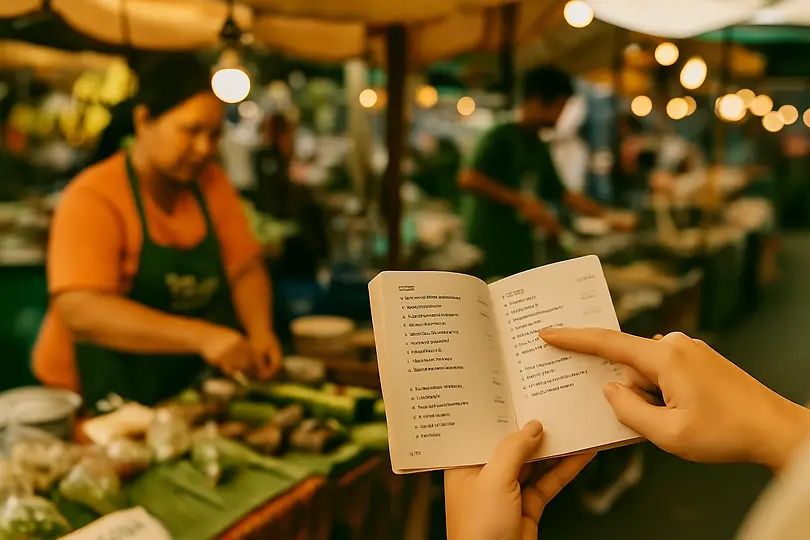
Trip Planning Tools
Before jetting off to Thailand, we spent a lot of time planning our itinerary, not just to make the most of our time, but to avoid the common pitfalls first-timers often face.

Our go-to tool was Stippl, a free and intuitive travel planning platform that allowed us to map out our route visually, day by day. We added key stops, accommodation details, transport connections, and activities into a single, streamlined itinerary. It even generated a custom map we could access offline, ideal when Wi-Fi was patchy.
For destination research, we started with the tried-and-tested Lonely Planet Thailand Guide for an overview of regions, transport advice, and seasonal info. We then dived into TripAdvisor for reviews on hotels, tours, and restaurants, but took opinions with a pinch of salt, especially when they clashed with more recent blog posts.
We also browsed threads on Reddit’s r/travel and r/Thailand for brutally honest takes and up-to-date travel advice from real travellers. Reddit was particularly helpful for uncovering hidden gems, understanding local etiquette, and getting safety tips that don’t always appear in glossy travel blogs.
YouTube played a huge role in shaping our expectations. We watched countless vlogs from creators who’d been there recently, not just for inspiration, but for a realistic sense of crowd levels, pricing, and weather. Channels with raw, unfiltered footage were especially useful for planning around things like tuk tuk scams, Full Moon Party chaos, and which beaches were worth visiting.
Independent travel blogs gave us insight into lesser-known temples, ethical animal experiences, and quieter parts of the islands. We prioritised advice from bloggers who had actually visited the places they were recommending, rather than regurgitating content from elsewhere.
For bookings, we mainly used Booking.com to reserve accommodation with free cancellation, which gave us flexibility when plans changed. We booked some activities through platforms like GetYourGuide and Klook to secure spots on popular tours and compare pricing.
To manage spending, we tracked our budget and exchange rates through Revolut, which allowed us withdraw cash at local ATMs with minimal fees.
We also relied on Google Maps offline areas, Google Translate, and Grab or Bolt (for taxis in cities where it’s available), all must-haves on the ground.
All in all, we’ve blended this prep work with our personal experiences across Thailand to bring you the kind of guide we wish we’d had, one that goes beyond the brochure to give you real-world insight, practical tools, and honest advice.




